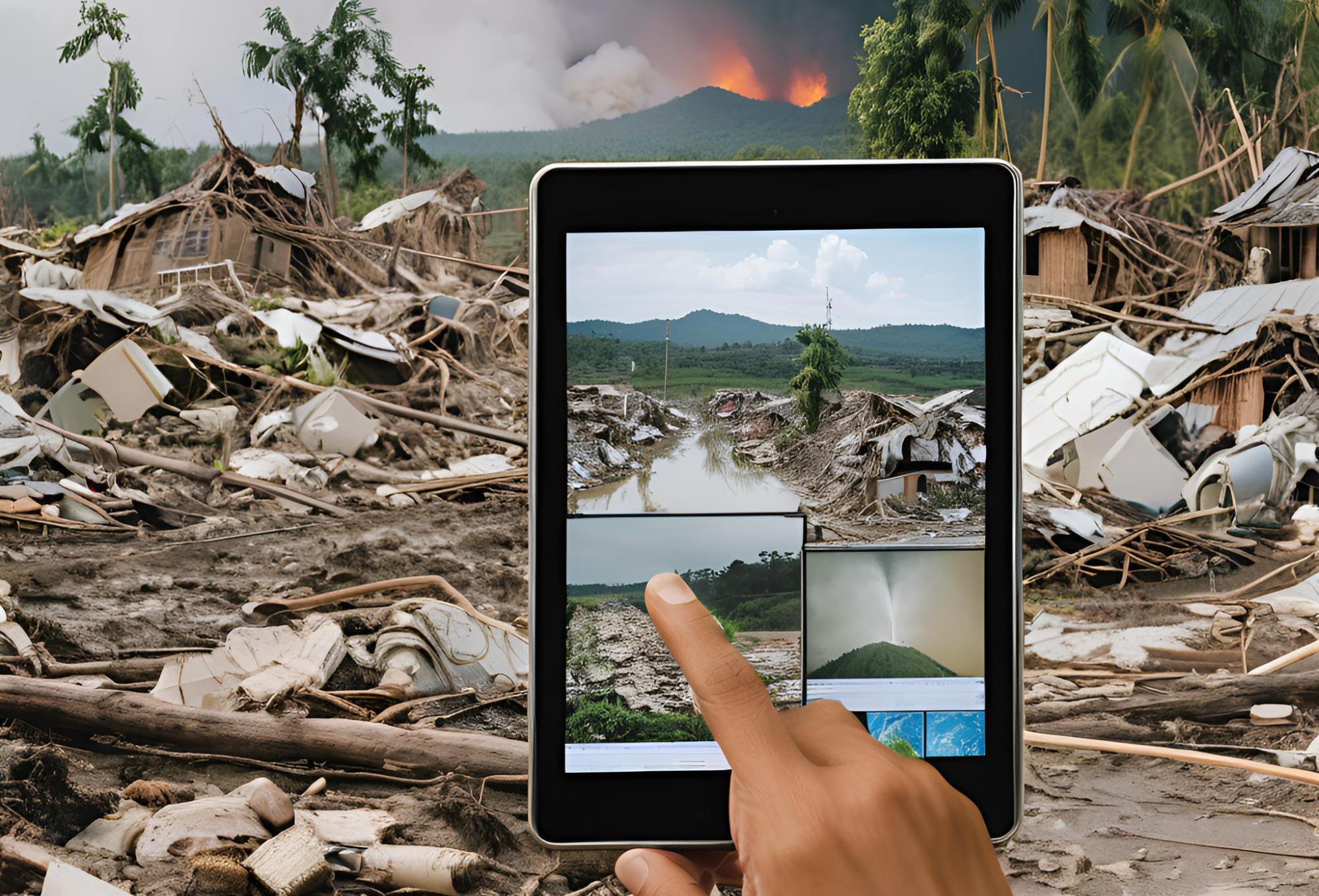Ethics in Action: Building a Co-Design Framework for Responsible Disaster Response

13 December 2024
Maria Chiara Zaccaria, Research Associate at the Lisbon Council
The Importance of Ethics in Disaster Management
Incorporating ethics into the use of emerging technologies for Natural Disaster Management (NDM) is not just a responsibility; it is a necessity. Advanced tools such as drones, AI systems, and social media analytics have immense potential to revolutionise disaster response by enhancing efficiency, accuracy, and real-time decision-making. However, this transformative power comes with profound ethical challenges. Privacy concerns, risks of surveillance, accountability gaps, and the equitable use of resources are critical issues that must be addressed. Without a robust ethical framework, these innovations could erode public trust, infringe on rights, and lead to unintended negative consequences, even in life-saving contexts. Ethical considerations, therefore, ensure that these technologies are used responsibly and transparently, safeguarding human dignity and fostering trust between authorities and communities. With ethics at the core, advancements can achieve both operational effectiveness and societal acceptance, truly benefiting all stakeholders.
TEMA’s Collaborative and Ethical Approach
Recognising these imperatives, TEMA adopted a collaborative, co-design methodology to align technological innovation with ethical responsibility. The foundation of this approach was a unique combination of Olivia Gambelin’s Value Canvas and the Soft Design Science Research (SDSR) methodology, creating a robust framework for inclusive and effective design.
The Value Canvas provides a structured process to integrate ethical considerations throughout the design and deployment of technology. By focusing on stakeholders, their values, and potential benefits and harms, this tool ensures alignment between technological advancements and societal priorities. It enables transparent, responsible decision-making that anticipates ethical concerns from the outset.
On the other hand, Soft Design Science Research (SDSR) prioritises iterative and participatory design processes. Unlike traditional design science, which often emphasises technical functionality, SDSR integrates qualitative insights and user feedback to address the social and organisational contexts of use. This methodology ensures solutions are not only effective but also adaptable to real-world complexities.
Bridging Innovation and Practice
By merging these methodologies, TEMA developed a participatory co-design process tailored to the unique challenges of NDM. Workshops were organised with field experts, and end-users, providing a platform for practical input to complement technical expertise. For instance, during a workshop with emergency responders, their feedback on operational challenges led to refinements in data visualization tools, ensuring the technology was both user-friendly and ethically sound.
This collaborative process enabled TEMA to address critical ethical concerns, such as privacy and accountability, while also tailoring solutions to meet the operational needs of first responders. The iterative nature of the design ensured continuous improvements, balancing innovation with the realities of disaster response.
Overcoming Challenges and Looking Ahead
While merging these methodologies brought significant benefits, it also presented challenges. Balancing ethical principles with operational efficiency required careful navigation, especially when addressing privacy concerns in real-time scenarios. However, these challenges highlighted the importance of collaboration and iterative refinement.
Looking ahead, TEMA’s approach serves as a model for integrating ethics into technology-driven disaster management. By prioritising transparency, accountability, and stakeholder involvement, this framework ensures that emerging technologies not only respond to immediate crises but also build long-term trust and resilience. As technological innovation continues to evolve, so must our commitment to ethical practices, ensuring a future where technology truly serves humanity.

